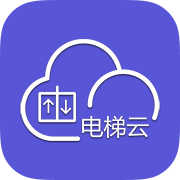稳扎稳打Silverlight(46) - 4.0UI之FlowDirection, TextTrimming, 响应鼠标滚轮事件, 响应鼠标右键事件, 全屏的
时间:2010-08-23 来源:webabcd
[源码下载]
稳扎稳打Silverlight(46) - 4.0UI之FlowDirection, TextTrimming, 响应鼠标滚轮事件, 响应鼠标右键事件, 全屏的新特性
作者:webabcd
介绍
Silverlight 4.0 用户界面(UI)相关:
在线DEMO
http://www.cnblogs.com/webabcd/archive/2010/08/09/1795417.html
示例
1、演示 FlowDirection 的效果
FlowDirectionDemo.xaml
 代码
<navigation:Page x:Class="Silverlight40.UI.FlowDirectionDemo"
代码
<navigation:Page x:Class="Silverlight40.UI.FlowDirectionDemo"
xmlns="http://schemas.microsoft.com/winfx/2006/xaml/presentation"
xmlns:x="http://schemas.microsoft.com/winfx/2006/xaml"
xmlns:d="http://schemas.microsoft.com/expression/blend/2008"
xmlns:mc="http://schemas.openxmlformats.org/markup-compatibility/2006"
xmlns:navigation="clr-namespace:System.Windows.Controls;assembly=System.Windows.Controls.Navigation"
Title="FlowDirectionDemo Page">
<StackPanel Width="200" HorizontalAlignment="Left">
<!--
FrameworkElement.FlowDirection - 指定文本或界面元素在它们的父元素中的流动方向 [System.Windows.FlowDirection 枚举]
FlowDirection.LeftToRight - 内容从左到右流动(默认值)
FlowDirection.RightToLeft - 内容从右到左流动
-->
<StackPanel Orientation="Horizontal" FlowDirection="RightToLeft">
<TextBlock Text="1" />
<TextBlock Text="2" />
<TextBlock Text="3" />
</StackPanel>
</StackPanel>
</navigation:Page>
2、演示 TextTrimming 的效果
TextTrimming.xaml
 代码
<navigation:Page x:Class="Silverlight40.UI.TextTrimming"
代码
<navigation:Page x:Class="Silverlight40.UI.TextTrimming"
xmlns="http://schemas.microsoft.com/winfx/2006/xaml/presentation"
xmlns:x="http://schemas.microsoft.com/winfx/2006/xaml"
xmlns:d="http://schemas.microsoft.com/expression/blend/2008"
xmlns:mc="http://schemas.openxmlformats.org/markup-compatibility/2006"
xmlns:navigation="clr-namespace:System.Windows.Controls;assembly=System.Windows.Controls.Navigation"
Title="TextTrimming Page">
<Grid x:Name="LayoutRoot">
<StackPanel HorizontalAlignment="Left">
<!--
TextBlock.TextTrimming - 文字溢出时的显示方式 [System.Windows.TextTrimming 枚举]
TextTrimming.None - 不做任何处理
TextTrimming.WordEllipsis - 在边界处,用省略号代替剩余文本
-->
<TextBlock Text="abcdefghijklmnopqrstuvwxyz" ToolTipService.ToolTip="abcdefghijklmnopqrstuvwxyz" Width="100" TextTrimming="None" />
<TextBlock Text="abcdefghijklmnopqrstuvwxyz" ToolTipService.ToolTip="abcdefghijklmnopqrstuvwxyz" Width="100" TextTrimming="WordEllipsis" />
</StackPanel>
</Grid>
</navigation:Page>
3、演示如何响应鼠标滚轮事件
MouseWheel.xaml 代码
<navigation:Page x:Class="Silverlight40.UI.MouseWheel"
代码
<navigation:Page x:Class="Silverlight40.UI.MouseWheel"
xmlns="http://schemas.microsoft.com/winfx/2006/xaml/presentation"
xmlns:x="http://schemas.microsoft.com/winfx/2006/xaml"
xmlns:d="http://schemas.microsoft.com/expression/blend/2008"
xmlns:mc="http://schemas.openxmlformats.org/markup-compatibility/2006"
xmlns:navigation="clr-namespace:System.Windows.Controls;assembly=System.Windows.Controls.Navigation"
xmlns:sdk="http://schemas.microsoft.com/winfx/2006/xaml/presentation/sdk"
Title="MouseWheel Page">
<Grid x:Name="LayoutRoot">
<StackPanel HorizontalAlignment="Left" Orientation="Horizontal">
<!--
在 Silverlight 4.0 中像 ListBox, DataGrid, ComboBox 这类的控件,如果出现了垂直滚动条的话,则可以通过滚动鼠标滚轮的方法来控制该滚动条
-->
<ListBox Name="listBox" VerticalAlignment="Top" Width="100" Height="200">
<ListBox.ItemTemplate>
<DataTemplate>
<StackPanel Orientation="Horizontal">
<TextBlock Text="{Binding}" Margin="1" />
</StackPanel>
</DataTemplate>
</ListBox.ItemTemplate>
</ListBox>
<sdk:DataGrid Name="dataGrid" VerticalAlignment="Top" Width="100" Height="200" IsReadOnly="True" AutoGenerateColumns="True" />
<ComboBox Name="comboBox" VerticalAlignment="Top" Width="100" Height="20" MaxDropDownHeight="200" />
<!--
用于演示如何响应鼠标的滚轮事件
-->
<StackPanel>
<TextBlock Name="lblMsg" VerticalAlignment="Top" />
<Grid Name="grid" Width="100" Height="100">
<Rectangle Fill="Yellow" />
<TextBlock Text="Mouse wheel me" />
</Grid>
</StackPanel>
</StackPanel>
</Grid>
</navigation:Page>
MouseWheel.xaml.cs 代码
/*
代码
/*
* 本例演示如何响应鼠标滚轮事件
* UIElement.MouseWheel - 鼠标滚轮滚动时所触发的事件
* MouseWheelEventArgs.Delta - 滚轮向上滚动为正数;滚轮向下滚动为负数
*/
using System;
using System.Collections.Generic;
using System.Linq;
using System.Net;
using System.Windows;
using System.Windows.Controls;
using System.Windows.Documents;
using System.Windows.Input;
using System.Windows.Media;
using System.Windows.Media.Animation;
using System.Windows.Shapes;
using System.Windows.Navigation;
namespace Silverlight40.UI
{
public partial class MouseWheel : Page
{
public MouseWheel()
{
InitializeComponent();
}
protected override void OnNavigatedTo(NavigationEventArgs e)
{
List<int> list = new List<int>();
for (int i = 0; i < 100; i++)
{
list.Add(i);
}
listBox.ItemsSource = list;
dataGrid.ItemsSource = list;
comboBox.ItemsSource = list;
grid.MouseWheel += new MouseWheelEventHandler(grid_MouseWheel);
}
void grid_MouseWheel(object sender, MouseWheelEventArgs e)
{
lblMsg.Text = "Delta: " + e.Delta;
}
}
}
4、演示如何响应鼠标右键事件
MouseRightClick.xaml 代码
<navigation:Page x:Class="Silverlight40.UI.MouseRightClick"
代码
<navigation:Page x:Class="Silverlight40.UI.MouseRightClick"
xmlns="http://schemas.microsoft.com/winfx/2006/xaml/presentation"
xmlns:x="http://schemas.microsoft.com/winfx/2006/xaml"
xmlns:d="http://schemas.microsoft.com/expression/blend/2008"
xmlns:mc="http://schemas.openxmlformats.org/markup-compatibility/2006"
xmlns:navigation="clr-namespace:System.Windows.Controls;assembly=System.Windows.Controls.Navigation"
Title="MouseRightClick Page">
<Grid x:Name="LayoutRoot">
<StackPanel HorizontalAlignment="Left">
<TextBlock Name="lblMsg" Width="120" />
<Button Name="button" Content="right click me" Width="120" />
</StackPanel>
</Grid>
</navigation:Page>
MouseRightClick.xaml.cs 代码
/*
代码
/*
* 本例演示如何响应鼠标右键事件
* UIElement.MouseRightButtonDown - 鼠标右键按下时所触发的事件
* UIElement.MouseRightButtonUp - 鼠标右键抬起时所触发的事件
*/
using System;
using System.Collections.Generic;
using System.Linq;
using System.Net;
using System.Windows;
using System.Windows.Controls;
using System.Windows.Documents;
using System.Windows.Input;
using System.Windows.Media;
using System.Windows.Media.Animation;
using System.Windows.Shapes;
using System.Windows.Navigation;
namespace Silverlight40.UI
{
public partial class MouseRightClick : Page
{
public MouseRightClick()
{
InitializeComponent();
}
protected override void OnNavigatedTo(NavigationEventArgs e)
{
button.MouseRightButtonDown += new MouseButtonEventHandler(button_MouseRightButtonDown);
button.MouseRightButtonUp += new MouseButtonEventHandler(button_MouseRightButtonUp);
}
void button_MouseRightButtonDown(object sender, MouseButtonEventArgs e)
{
lblMsg.Text = "鼠标右键 Down";
e.Handled = true;
}
void button_MouseRightButtonUp(object sender, MouseButtonEventArgs e)
{
lblMsg.Text = "鼠标右键 Up";
e.Handled = true;
}
}
}
5、演示全屏的新特性
FullScreen.xaml 代码
<navigation:Page x:Class="Silverlight40.UI.FullScreen"
代码
<navigation:Page x:Class="Silverlight40.UI.FullScreen"
xmlns="http://schemas.microsoft.com/winfx/2006/xaml/presentation"
xmlns:x="http://schemas.microsoft.com/winfx/2006/xaml"
xmlns:d="http://schemas.microsoft.com/expression/blend/2008"
xmlns:mc="http://schemas.openxmlformats.org/markup-compatibility/2006"
xmlns:navigation="clr-namespace:System.Windows.Controls;assembly=System.Windows.Controls.Navigation"
Title="FullScreen Page">
<Grid x:Name="LayoutRoot">
<Button Name="btnFullScreen" Width="100" Height="50" Content="最大化/还原" Click="btnFullScreen_Click" />
</Grid>
</navigation:Page>
FullScreen.xaml.cs 代码
/*
代码
/*
* Application.Current.Host.Content.FullScreenOptions - 全屏的选项
* System.Windows.Interop.FullScreenOptions.None - 当其他程序获得焦点时,退出全屏模式(默认值)
* System.Windows.Interop.FullScreenOptions.StaysFullScreenWhenUnfocused - 当其他程序获得焦点时,保持全屏模式
* 当设置为“StaysFullScreenWhenUnfocused”全屏时会弹出对话框,要求用户确认是否使用“StaysFullScreenWhenUnfocused”的全屏模式。如果程序是“被信任的应用程序”则不会弹出该对话框
*/
using System;
using System.Collections.Generic;
using System.Linq;
using System.Net;
using System.Windows;
using System.Windows.Controls;
using System.Windows.Documents;
using System.Windows.Input;
using System.Windows.Media;
using System.Windows.Media.Animation;
using System.Windows.Shapes;
using System.Windows.Navigation;
namespace Silverlight40.UI
{
public partial class FullScreen : Page
{
public FullScreen()
{
InitializeComponent();
}
protected override void OnNavigatedTo(NavigationEventArgs e)
{
}
private void btnFullScreen_Click(object sender, RoutedEventArgs e)
{
Application.Current.Host.Content.FullScreenOptions = System.Windows.Interop.FullScreenOptions.StaysFullScreenWhenUnfocused;
Application.Current.Host.Content.IsFullScreen ^= true;
}
}
}
OK
[源码下载]
稳扎稳打Silverlight(46) - 4.0UI之FlowDirection, TextTrimming, 响应鼠标滚轮事件, 响应鼠标右键事件, 全屏的新特性
作者:webabcd
介绍
Silverlight 4.0 用户界面(UI)相关:
- FlowDirection - 指定文本或界面元素在它们的父元素中的流动方向
- TextTrimming - 文字溢出时的显示方式
- 响应鼠标的滚轮事件
- 响应鼠标的右键事件
- 全屏的新特性 - 当其他程序获得焦点时,是否退出全屏模式
在线DEMO
http://www.cnblogs.com/webabcd/archive/2010/08/09/1795417.html
示例
1、演示 FlowDirection 的效果
FlowDirectionDemo.xaml
 代码
<navigation:Page x:Class="Silverlight40.UI.FlowDirectionDemo"
代码
<navigation:Page x:Class="Silverlight40.UI.FlowDirectionDemo" xmlns="http://schemas.microsoft.com/winfx/2006/xaml/presentation"
xmlns:x="http://schemas.microsoft.com/winfx/2006/xaml"
xmlns:d="http://schemas.microsoft.com/expression/blend/2008"
xmlns:mc="http://schemas.openxmlformats.org/markup-compatibility/2006"
xmlns:navigation="clr-namespace:System.Windows.Controls;assembly=System.Windows.Controls.Navigation"
Title="FlowDirectionDemo Page">
<StackPanel Width="200" HorizontalAlignment="Left">
<!--
FrameworkElement.FlowDirection - 指定文本或界面元素在它们的父元素中的流动方向 [System.Windows.FlowDirection 枚举]
FlowDirection.LeftToRight - 内容从左到右流动(默认值)
FlowDirection.RightToLeft - 内容从右到左流动
-->
<StackPanel Orientation="Horizontal" FlowDirection="RightToLeft">
<TextBlock Text="1" />
<TextBlock Text="2" />
<TextBlock Text="3" />
</StackPanel>
</StackPanel>
</navigation:Page>
2、演示 TextTrimming 的效果
TextTrimming.xaml
 代码
<navigation:Page x:Class="Silverlight40.UI.TextTrimming"
代码
<navigation:Page x:Class="Silverlight40.UI.TextTrimming" xmlns="http://schemas.microsoft.com/winfx/2006/xaml/presentation"
xmlns:x="http://schemas.microsoft.com/winfx/2006/xaml"
xmlns:d="http://schemas.microsoft.com/expression/blend/2008"
xmlns:mc="http://schemas.openxmlformats.org/markup-compatibility/2006"
xmlns:navigation="clr-namespace:System.Windows.Controls;assembly=System.Windows.Controls.Navigation"
Title="TextTrimming Page">
<Grid x:Name="LayoutRoot">
<StackPanel HorizontalAlignment="Left">
<!--
TextBlock.TextTrimming - 文字溢出时的显示方式 [System.Windows.TextTrimming 枚举]
TextTrimming.None - 不做任何处理
TextTrimming.WordEllipsis - 在边界处,用省略号代替剩余文本
-->
<TextBlock Text="abcdefghijklmnopqrstuvwxyz" ToolTipService.ToolTip="abcdefghijklmnopqrstuvwxyz" Width="100" TextTrimming="None" />
<TextBlock Text="abcdefghijklmnopqrstuvwxyz" ToolTipService.ToolTip="abcdefghijklmnopqrstuvwxyz" Width="100" TextTrimming="WordEllipsis" />
</StackPanel>
</Grid>
</navigation:Page>
3、演示如何响应鼠标滚轮事件
MouseWheel.xaml
 代码
<navigation:Page x:Class="Silverlight40.UI.MouseWheel"
代码
<navigation:Page x:Class="Silverlight40.UI.MouseWheel" xmlns="http://schemas.microsoft.com/winfx/2006/xaml/presentation"
xmlns:x="http://schemas.microsoft.com/winfx/2006/xaml"
xmlns:d="http://schemas.microsoft.com/expression/blend/2008"
xmlns:mc="http://schemas.openxmlformats.org/markup-compatibility/2006"
xmlns:navigation="clr-namespace:System.Windows.Controls;assembly=System.Windows.Controls.Navigation"
xmlns:sdk="http://schemas.microsoft.com/winfx/2006/xaml/presentation/sdk"
Title="MouseWheel Page">
<Grid x:Name="LayoutRoot">
<StackPanel HorizontalAlignment="Left" Orientation="Horizontal">
<!--
在 Silverlight 4.0 中像 ListBox, DataGrid, ComboBox 这类的控件,如果出现了垂直滚动条的话,则可以通过滚动鼠标滚轮的方法来控制该滚动条
-->
<ListBox Name="listBox" VerticalAlignment="Top" Width="100" Height="200">
<ListBox.ItemTemplate>
<DataTemplate>
<StackPanel Orientation="Horizontal">
<TextBlock Text="{Binding}" Margin="1" />
</StackPanel>
</DataTemplate>
</ListBox.ItemTemplate>
</ListBox>
<sdk:DataGrid Name="dataGrid" VerticalAlignment="Top" Width="100" Height="200" IsReadOnly="True" AutoGenerateColumns="True" />
<ComboBox Name="comboBox" VerticalAlignment="Top" Width="100" Height="20" MaxDropDownHeight="200" />
<!--
用于演示如何响应鼠标的滚轮事件
-->
<StackPanel>
<TextBlock Name="lblMsg" VerticalAlignment="Top" />
<Grid Name="grid" Width="100" Height="100">
<Rectangle Fill="Yellow" />
<TextBlock Text="Mouse wheel me" />
</Grid>
</StackPanel>
</StackPanel>
</Grid>
</navigation:Page>
MouseWheel.xaml.cs
 代码
/*
代码
/** 本例演示如何响应鼠标滚轮事件
* UIElement.MouseWheel - 鼠标滚轮滚动时所触发的事件
* MouseWheelEventArgs.Delta - 滚轮向上滚动为正数;滚轮向下滚动为负数
*/
using System;
using System.Collections.Generic;
using System.Linq;
using System.Net;
using System.Windows;
using System.Windows.Controls;
using System.Windows.Documents;
using System.Windows.Input;
using System.Windows.Media;
using System.Windows.Media.Animation;
using System.Windows.Shapes;
using System.Windows.Navigation;
namespace Silverlight40.UI
{
public partial class MouseWheel : Page
{
public MouseWheel()
{
InitializeComponent();
}
protected override void OnNavigatedTo(NavigationEventArgs e)
{
List<int> list = new List<int>();
for (int i = 0; i < 100; i++)
{
list.Add(i);
}
listBox.ItemsSource = list;
dataGrid.ItemsSource = list;
comboBox.ItemsSource = list;
grid.MouseWheel += new MouseWheelEventHandler(grid_MouseWheel);
}
void grid_MouseWheel(object sender, MouseWheelEventArgs e)
{
lblMsg.Text = "Delta: " + e.Delta;
}
}
}
4、演示如何响应鼠标右键事件
MouseRightClick.xaml
 代码
<navigation:Page x:Class="Silverlight40.UI.MouseRightClick"
代码
<navigation:Page x:Class="Silverlight40.UI.MouseRightClick" xmlns="http://schemas.microsoft.com/winfx/2006/xaml/presentation"
xmlns:x="http://schemas.microsoft.com/winfx/2006/xaml"
xmlns:d="http://schemas.microsoft.com/expression/blend/2008"
xmlns:mc="http://schemas.openxmlformats.org/markup-compatibility/2006"
xmlns:navigation="clr-namespace:System.Windows.Controls;assembly=System.Windows.Controls.Navigation"
Title="MouseRightClick Page">
<Grid x:Name="LayoutRoot">
<StackPanel HorizontalAlignment="Left">
<TextBlock Name="lblMsg" Width="120" />
<Button Name="button" Content="right click me" Width="120" />
</StackPanel>
</Grid>
</navigation:Page>
MouseRightClick.xaml.cs
 代码
/*
代码
/** 本例演示如何响应鼠标右键事件
* UIElement.MouseRightButtonDown - 鼠标右键按下时所触发的事件
* UIElement.MouseRightButtonUp - 鼠标右键抬起时所触发的事件
*/
using System;
using System.Collections.Generic;
using System.Linq;
using System.Net;
using System.Windows;
using System.Windows.Controls;
using System.Windows.Documents;
using System.Windows.Input;
using System.Windows.Media;
using System.Windows.Media.Animation;
using System.Windows.Shapes;
using System.Windows.Navigation;
namespace Silverlight40.UI
{
public partial class MouseRightClick : Page
{
public MouseRightClick()
{
InitializeComponent();
}
protected override void OnNavigatedTo(NavigationEventArgs e)
{
button.MouseRightButtonDown += new MouseButtonEventHandler(button_MouseRightButtonDown);
button.MouseRightButtonUp += new MouseButtonEventHandler(button_MouseRightButtonUp);
}
void button_MouseRightButtonDown(object sender, MouseButtonEventArgs e)
{
lblMsg.Text = "鼠标右键 Down";
e.Handled = true;
}
void button_MouseRightButtonUp(object sender, MouseButtonEventArgs e)
{
lblMsg.Text = "鼠标右键 Up";
e.Handled = true;
}
}
}
5、演示全屏的新特性
FullScreen.xaml
 代码
<navigation:Page x:Class="Silverlight40.UI.FullScreen"
代码
<navigation:Page x:Class="Silverlight40.UI.FullScreen" xmlns="http://schemas.microsoft.com/winfx/2006/xaml/presentation"
xmlns:x="http://schemas.microsoft.com/winfx/2006/xaml"
xmlns:d="http://schemas.microsoft.com/expression/blend/2008"
xmlns:mc="http://schemas.openxmlformats.org/markup-compatibility/2006"
xmlns:navigation="clr-namespace:System.Windows.Controls;assembly=System.Windows.Controls.Navigation"
Title="FullScreen Page">
<Grid x:Name="LayoutRoot">
<Button Name="btnFullScreen" Width="100" Height="50" Content="最大化/还原" Click="btnFullScreen_Click" />
</Grid>
</navigation:Page>
FullScreen.xaml.cs
 代码
/*
代码
/** Application.Current.Host.Content.FullScreenOptions - 全屏的选项
* System.Windows.Interop.FullScreenOptions.None - 当其他程序获得焦点时,退出全屏模式(默认值)
* System.Windows.Interop.FullScreenOptions.StaysFullScreenWhenUnfocused - 当其他程序获得焦点时,保持全屏模式
* 当设置为“StaysFullScreenWhenUnfocused”全屏时会弹出对话框,要求用户确认是否使用“StaysFullScreenWhenUnfocused”的全屏模式。如果程序是“被信任的应用程序”则不会弹出该对话框
*/
using System;
using System.Collections.Generic;
using System.Linq;
using System.Net;
using System.Windows;
using System.Windows.Controls;
using System.Windows.Documents;
using System.Windows.Input;
using System.Windows.Media;
using System.Windows.Media.Animation;
using System.Windows.Shapes;
using System.Windows.Navigation;
namespace Silverlight40.UI
{
public partial class FullScreen : Page
{
public FullScreen()
{
InitializeComponent();
}
protected override void OnNavigatedTo(NavigationEventArgs e)
{
}
private void btnFullScreen_Click(object sender, RoutedEventArgs e)
{
Application.Current.Host.Content.FullScreenOptions = System.Windows.Interop.FullScreenOptions.StaysFullScreenWhenUnfocused;
Application.Current.Host.Content.IsFullScreen ^= true;
}
}
}
OK
[源码下载]
相关阅读 更多 +











